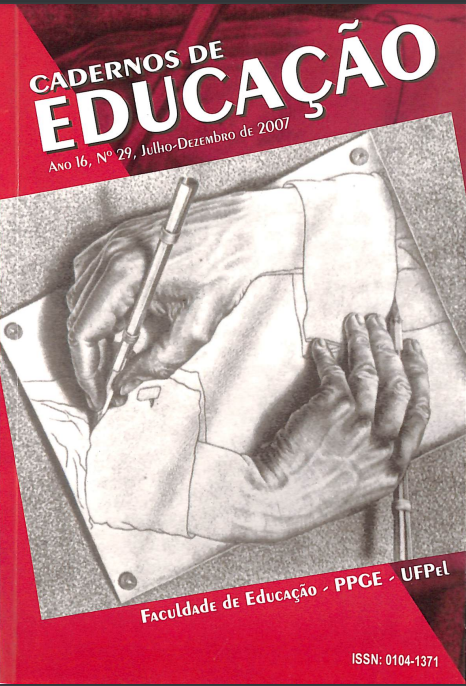A universidade e o colonialismo denunciado por Fanon, Freire e Sartre
Resumo
Prefaciando o clássico da descolonização, Os Condenados da Terra, de Frantz Fanon, Sartre escreveu, em 1961: “Não faz muito tempo a terra tinha dois bilhões de habitantes, isto é, quinhentos milhões de homens e um bilhão e quinhentos milhões de indígenas. Os primeiros dispunham do Verbo, os outros pediam-no emprestado”. Na visão colonialista, denunciada por Fanon e Sartre, o “centro” pensa, fala e escreve. A “periferia” consome e reproduz a palavra do centro. É a "cultura do silêncio", tantas vezes verberada por Freire. Este problema teria sido superado hoje, em nossas universidades? Examinando a ampla documentação produzida durante as discussões da Reforma Universitária, notei que retorna com freqüência a preocupação de que a universidade brasileira supere as crônicas formas de colonialismo que acompanham desde sempre. Neste artigo, procuro discutir fatos, situações, concepções e modismos acadêmicos que revelam formas gritantes de colonialismo, e me questiono a respeito de quais os caminhos para que a Reforma Universitária, cujo projeto tramita já no Congresso, resulte naquela universidade que era o sonho de Anísio Teixeira, ao pensar com seus pares a futura Universidade de Brasília: que o Brasil pudesse ter, finalmente, uma universidade que não fosse “universidade de mentira”, mas sim uma universidade destinada a “pensar o Brasil como problema”, segundo Darcy Ribeiro. Temos o direito de esperar e o dever de nos mobilizarmos, para que o sonho não morra nas discussões e decisões do Congresso.Palavras-chave: Colonialismo, Universidade, Reforma Universitária, Formação de Educadores, Autonomia, Descolonização.
The cooperative system in the agricultural technical formation’s: contradictions of the cooperative-scholl
AbstractIn his Preface to Frantz Fanon’s classic on decolonization, The Wretched of the Earth Sartre wrote in 1961: “Not so very long ago, the earth numbered two thousand million inhabitants: five hundred million men, and one thousand five hundred million natives. The former had the Word; the others had the use of it.” In the colonialist view denounced by Fanon and Sartre the “center” thinks, speaks and writes. The “periphery” consumes and reproduces the words of the center. Has this problem been overcome today in our universities? Examining the extensive documentation produced during the discussions on University Reform, I realized how often one comes across the concern that Brazilian universities should overcome the chronic forms of colonialism that have accompanied it from the very beginning. In this article I discuss facts, situations, views and academic fads that reveal gross forms of colonialism and reflect on what should be done in order that the University Reform that is already being debated in the Brazilian Congress produces that university that Anísio Teixeira and his peers dreamt about when they thought about the project for the University of Brasília. In their view, Brazil should at last have a university that would not be a “fake university,” but an institution designed to reflect on “Brazil as problem,” in the words of Darcy Ribeiro. We have the right to expect and the duty to mobilize ourselves so that the dream does not perish in the discussions and decisions by the Brazilian Congress.
Keywords: Colonialism, University, University Reform, Training of educators, Autonomy, Decolonization.
Downloads
Não há dados estatísticos.
Como Citar
Andreola, B. A. (1). A universidade e o colonialismo denunciado por Fanon, Freire e Sartre. Cadernos De Educação, (29). https://doi.org/10.15210/caduc.vi29.1780
Edição
Seção
Artigos



